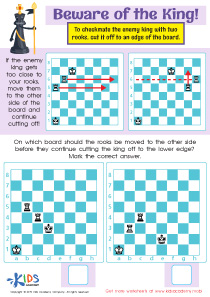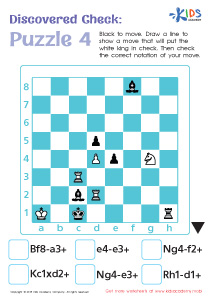Easy Chess Worksheets for Ages 3-6
6 filtered results
-
From - To
Welcome to our "Easy Chess Worksheets for Ages 3-6" page! Designed to introduce young learners to the exciting world of chess, our worksheets offer a fun and engaging way to develop critical thinking, problem-solving, and strategic skills. Each worksheet is tailored for little hands and curious minds, featuring colorful illustrations and easy-to-follow activities. Perfect for teachers, parents, and caregivers, these resources will help children build foundational chess knowledge while enhancing their concentration and creativity. Explore a variety of puzzles, visual aids, and playful exercises that make learning chess a delightful adventure for your little ones! Start your chess journey today!
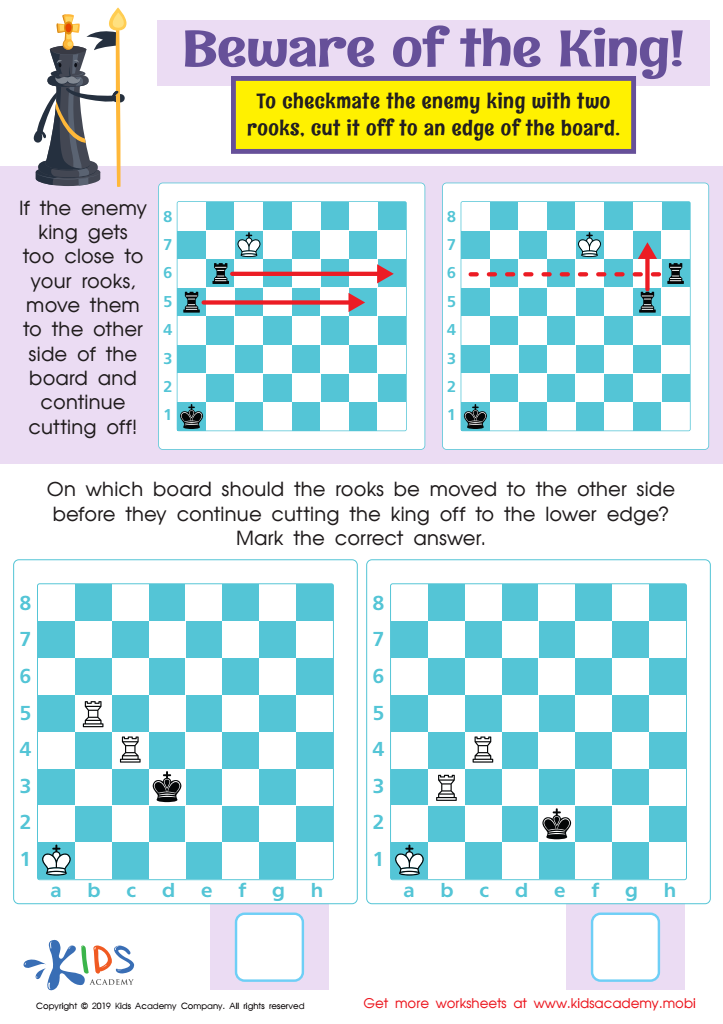

Beware of the King! Worksheet
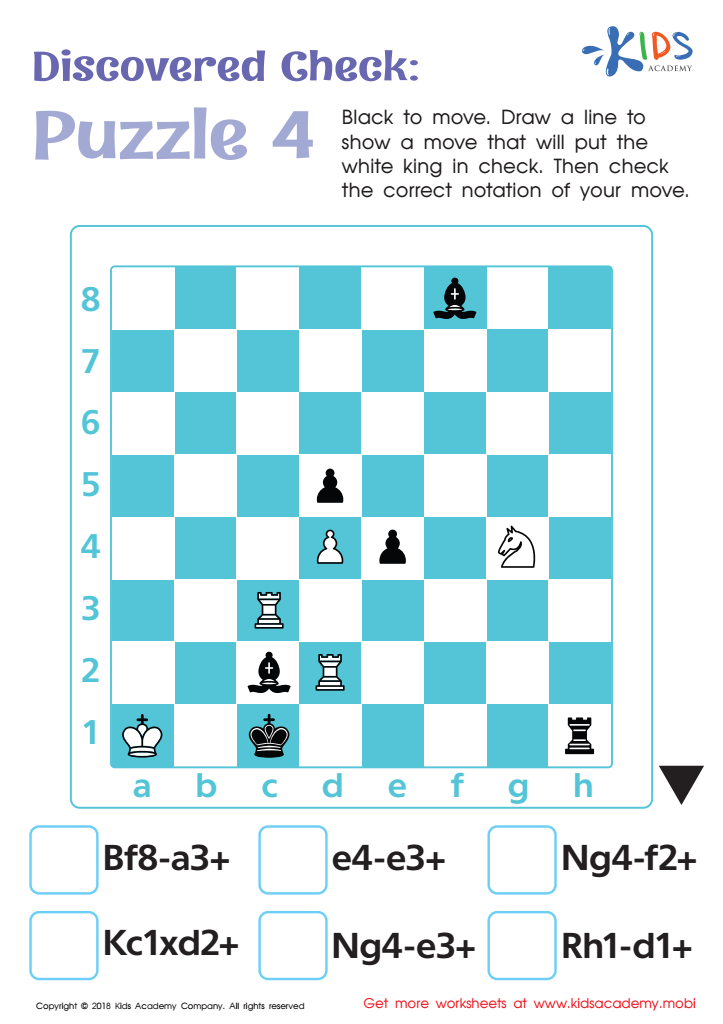

Discovered Check: Puzzle 4 Worksheet


Discovered Check: Puzzle 2 Worksheet
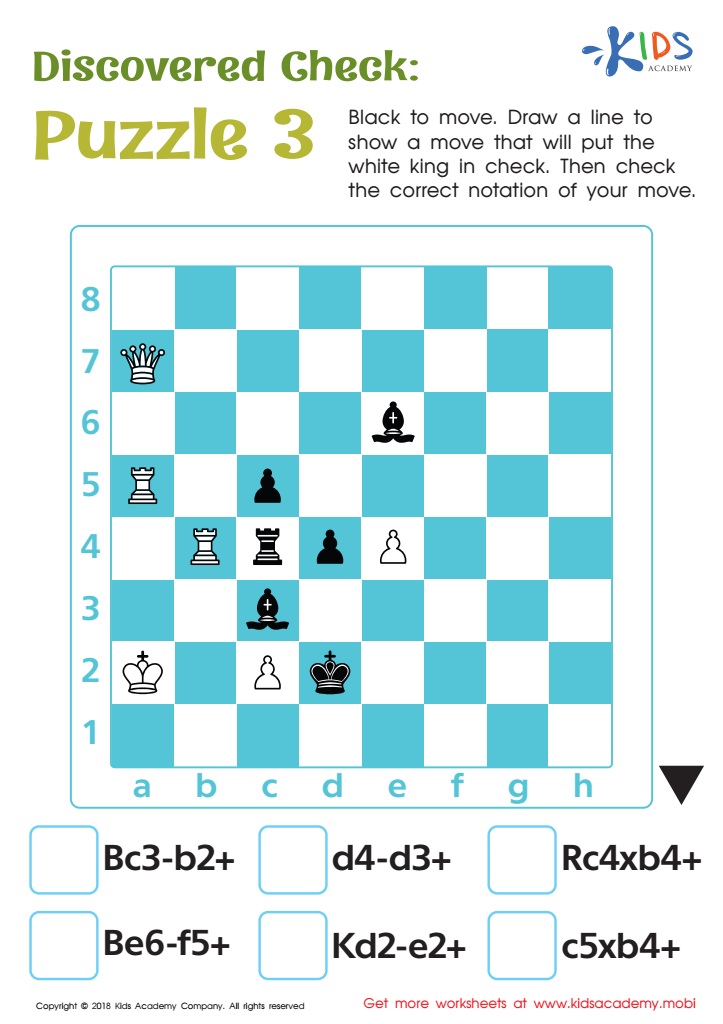

Discovered Check: Puzzle 3 Worksheet
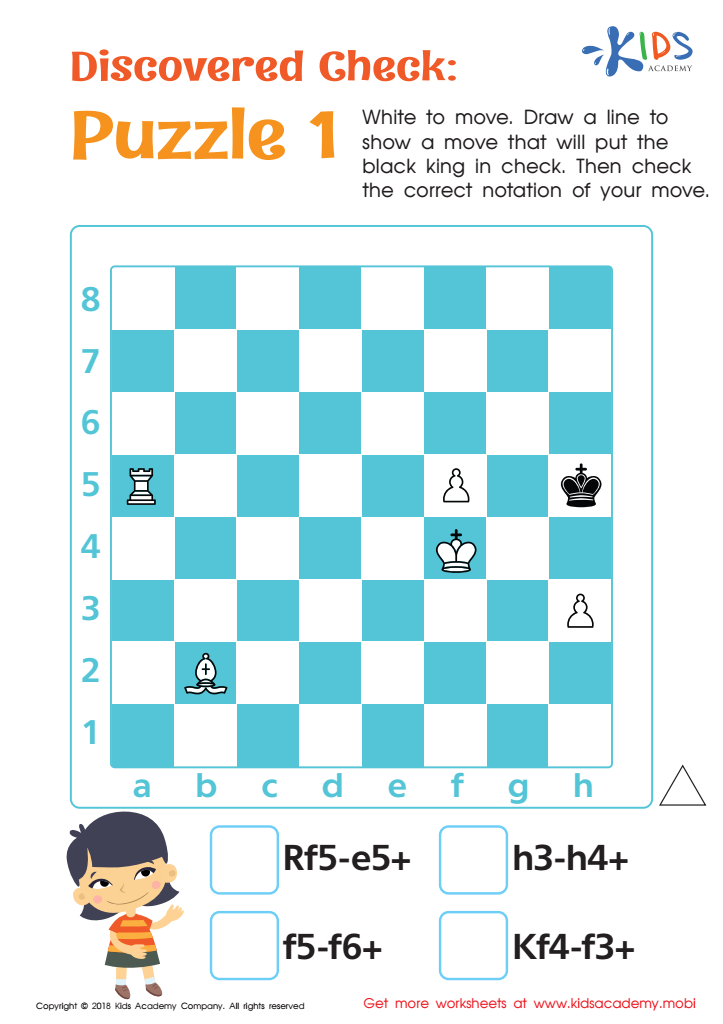

Discovered Check: Puzzle 1 Worksheet
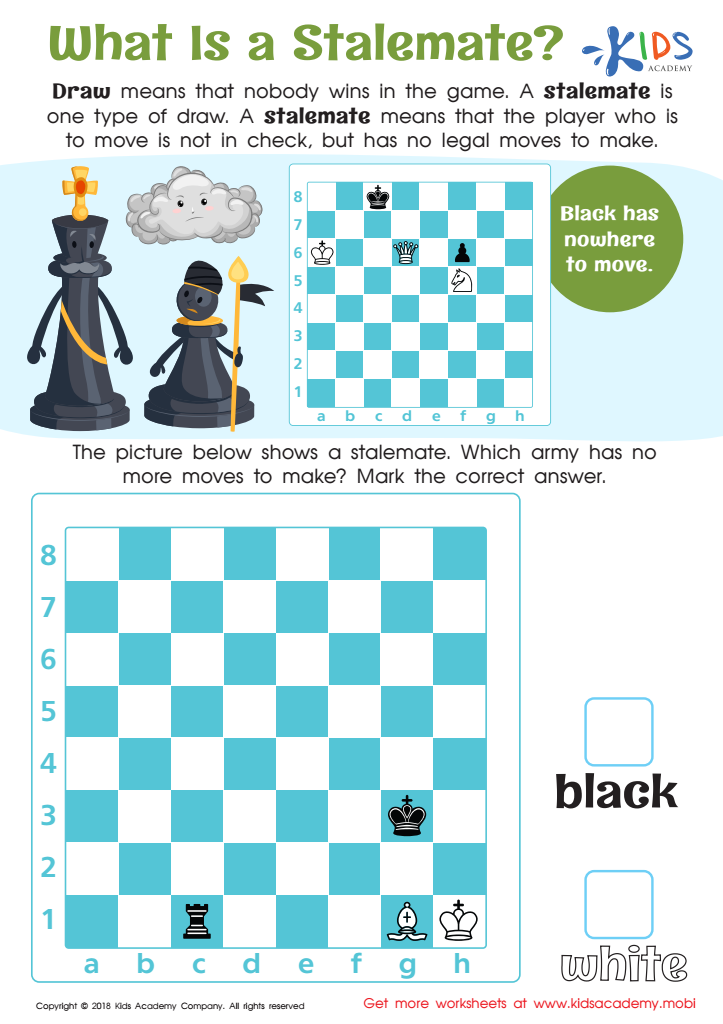

What Is a Stalemate? Worksheet
Easy Chess for Ages 3-6 is an engaging and educational tool that parents and teachers should embrace for several compelling reasons. Firstly, chess promotes critical thinking and problem-solving skills at an early age. By teaching children the basics of chess, they learn to recognize patterns, anticipate opponents' moves, and develop strategic planning skills. These cognitive abilities can translate into improved performance in other academic areas, such as math and reading.
Moreover, Easy Chess fosters social skills and emotional intelligence. Playing chess encourages turn-taking, patience, and respect for others, as children learn to both win and lose graciously. This understanding of sportsmanship is crucial in everyday life and future interactions.
Additionally, incorporating chess into early education can boost a child's self-esteem and confidence. As they grasp concepts and improve their skills, they experience a sense of accomplishment, further inspiring them to tackle new challenges.
Lastly, Easy Chess provides a fun and interactive activity that can strengthen the bond between parents, children, and teachers. Engaging in gameplay together encourages communication, collaboration, and quality time, creating lasting memories while nurturing a love for learning. Overall, embracing Easy Chess can lay a strong foundation for a child's intellectual and social development.

 Assign to My Students
Assign to My Students











